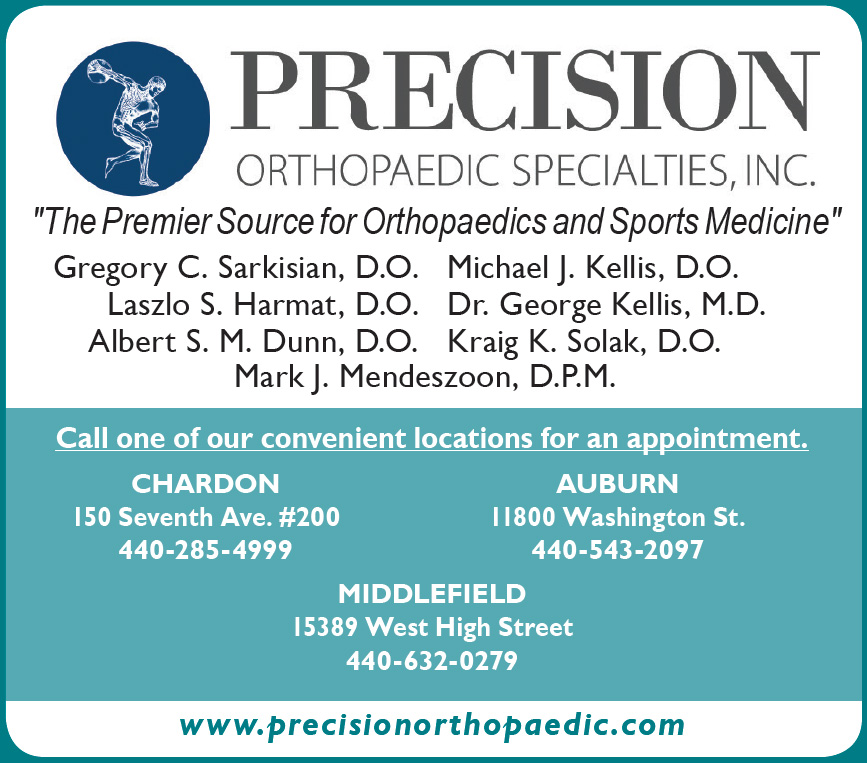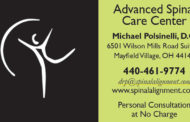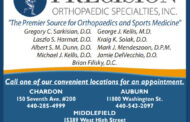 Gregory C. Sarkisian, D.O.
Gregory C. Sarkisian, D.O.
- Arthroscopy
- Minimally Invasive Joint Replacement
- General Orthopaedics
- Minimally Invasive Rotator Cuff Repair
- Acl Reconstruction
Gregory C. Sarkisian, D.O. is a board certified orthopaedic surgeon specializing in the surgical management of orthopaedic conditions and sports related injuries.
A recognized leader in orthopaedics, Dr. Sarkisian earned his Doctor of Osteopathic Medicine degree from Ohio University College of Osteopathic Medicine. He is President of Precision Orthopaedic Specialties Inc. where he treats patients with an emphasis on arthroscopic joint surgery, total joint replacements, fracture care, and general orthopaedics.
Always eager to provide patients the best in the latest surgical techniques, Dr. Sarkisian has been trained in minimally invasive surgery, including total hip and knee replacements and minimally invasive arthroscopic shoulder and knee procedures.
Dr. Sarkisian is accepting new patients at Precision’s Chardon and Middlefield Offices.
My Knees Hurt – by Dr. Gregory Sarkisian
Many of us experience knee pain throughout our adult lives which is often activity dependent. The more active we are, the more apt we are to experience pain. Life’s excessive mileage can lead to wear and tear of the knee joint. Knee pain can be due to recent injury or may be related to a remote injury or prior knee surgery. Whatever the cause, knee pain can become debilitating.
If your knee pain is due to activity, modify your lifestyle to accommodate your discomfort. Certain exercises like jogging or aerobics may need to be changed to lower impact activities such as swimming, biking or walking. Changing to low impact activities reduces the stress on the joint which can decrease knee pain. Also, taking an over the counter anti-inflammatory medication such as Ibuprofen can be helpful to decrease inflammation from injury and/or arthritis.
Certain instances may warrant seeing your physician. Persistent swelling in the knee, a sensation of “locking”, the inability to fully bend or straighten the knee, or a feeling of instability during activity, may be signs of possible internal damage, involving a ligament or cartilage. These injuries may require arthroscopic intervention. Arthroscopy is a simple procedure which is done in the hospital as an outpatient. Instruments, including a small camera, are inserted through small incisions / portals into the joint. Cartilage and/or ligament damage can be corrected using this technique.
If knee pain is secondary to advanced arthritis, there are conservative treatment options available. Some are natural measures which can help arthritic knees, such as glucosamine and chondroitin sulfate, MSM, shark cartilage, and a relatively new preparation which is called hyaluronic acid. Although these may not help all people, they have minimal side effects and can offer relief for many looking for over the counter options.
If home remedies do not offer relief, there are other non-surgical options your physician can offer. Bracing may remove pressure from the arthritic joint offering relief and allowing you to be more active. Also, a series of gel (hyaluronic acid) injections is a method of introducing a lubricating nutritional supplement to the knee which may offer pain relief for up to a year.
Finally, if conservative efforts fail and arthritic pain continues to worsen, even while at rest, consider total joint replacement. Newer, minimally invasive techniques offer much smaller incisions, a shorter stay in the hospital (2 or 3 days) and a quicker recovery. Under certain conditions, knee replacement surgery can now be performed as an outpatient procedure, with patients returning home the day of the surgery.
If your knees are aching, try conservative treatments. See if they offer relief. If your symptoms persist or worsen, call your doctor. Getting back to normal activity with pain-free knees could be just around the corner.
























